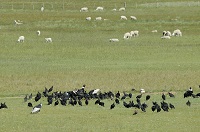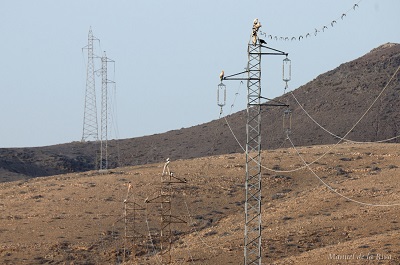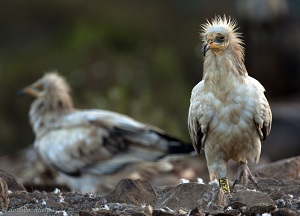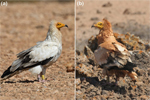An international team of scientists reveals in a new study that the abandonment of traditional livestock farming activities, such as transhumance, could be detrimental to scavenger communities. This activity has configured landscape across the world and has created ecosystems, which have benefited a great number of animal and plant species, including vultures. The research work has been carried out by scientists at the University of Granada, the Miguel Hernández University, the Doñana Biological Station – CSIC and the University of Comahue (Argentine), among others.
To analyse the relationship between transhumance and large scavengers populations, 50 griffon vultures (Gyps fulvus) and 18 Andean condors (Vultur gryphus) were monitored with GPS devices. The aim was knowing and compare how these two species respond to the arrival of transhumant herds to summer pastures in two places showing very different levels of transhumance persistence, the Pyrenees and the Andes. Despite having differences among them, both species are scavengers, which search for food gliding during hours, making transhumant herds attractive for them.
Results reveal that both species "follow" the herds to the summer pastures, but this attraction is much stronger in the case of Andean condors. "This difference is due to the near disappearance of transhumance in the Pyrenees, which is barely attractive for griffon vultures", explains researcher Eneko Arrondo, first author of the study. "On the contrary, transhumant herds in Argentina are still numerous and an important trophic resource for condors".
This study demonstrates, therefore, that the relationship between transhumance and vultures are deep ecological consequences. During centuries, these species have taken advantages of herds in summer pastures as an abundant and predictable carrion resource, which have modelled their movements and use of space. Now that this activity is in decline, especially in Spain, the food availability for vultures has been reduced, given that the natural recovery of wild ungulates cannot compensate for the density of carrion maintained by this practice. As a result, vultures would not have enough attraction for the scarce remaining transhumant herds to drive their movements. This could result in a diet paradigm shift for vultures, from depending on extensive livestock farming, such as transhumance, to depending on intensive livestock farming. "This could bring new risk for vultures, like the exposition to veterinarian products", points out Arrondo.
Considering the current modernization of livestock farming, the team concludes that these results should be taken into consideration by environmental managers to avoid potential negative effects not only on vulture populations, but also on other species depending on these traditional livestock farming activities. "The abandonment of transhumance involves deep changes, whose consequences go beyond large scavengers and affect the wider ecological community, with ultimate consequences at ecosystem and landscape scale", concludes José Antonio Donázar, Professor of Research in the Doñana Biological Station – CSIC. "In the future, it is necessary to look into how the use of space by vultures is changing in the transhumant area as it is becoming smaller".
This research work was funded by Comunidad de Bardenas Reales de Navarra, the Spanish Ministry of Economy and Competitiveness and the NextGeneration EU plan.
Reference:
Eneko Arrondo, Jorgelina Guido, Pilar Oliva-Vidal, Antoni Margalida, Sergio A. Lambertucci, José Antonio Donázar, Ainara Cortés-Avizanda, José Daniel Anadón, José Antonio Sánchez-Zapata. From Pyrenees to Andes: The relationship between transhumant livestock and vultures. Biological Conservation. https://doi.org/10.1016/j.biocon.2023.110081
Contact:
outreach@ebd.csic.es


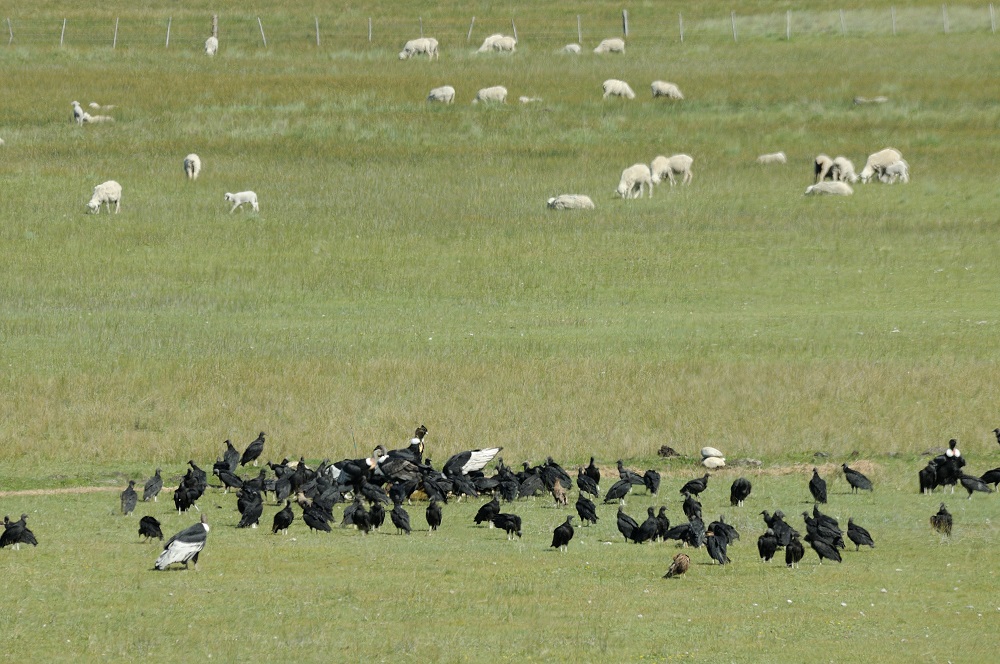
 Decline of transhumance will negatively to impact vulture communities
Decline of transhumance will negatively to impact vulture communities